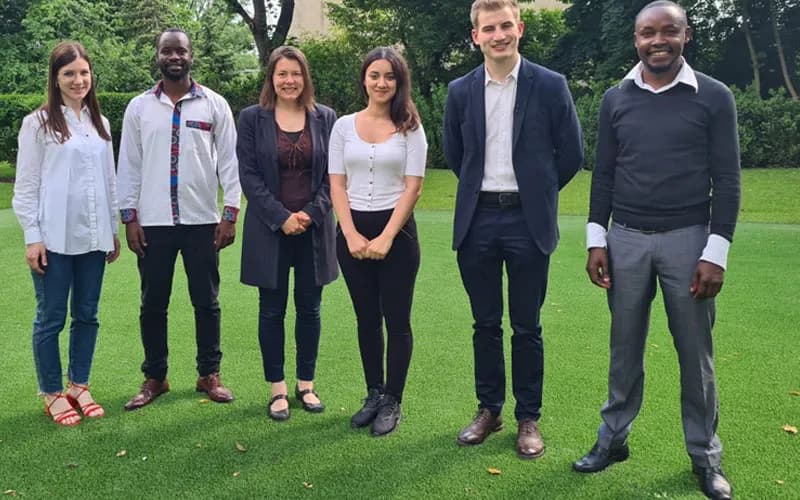We're loading the full news article for you. This includes the article content, images, author information, and related articles.
Hundreds of Kenyan students are building their academic and professional futures in Hungary, leveraging scholarships that underscore growing bilateral ties and a broader trend of Kenyans seeking international education opportunities.

Nairobi, Kenya – Each year, hundreds of ambitious Kenyan students embark on a journey to Hungary, driven by the promise of quality education and global exposure offered through scholarships like the Stipendium Hungaricum Programme. This pursuit of international academic opportunities highlights a significant trend among Kenyan youth, even as concerns about brain drain persist.
The Hungarian government annually provides 200 scholarships to eligible Kenyan students for undergraduate, one-tier master's, master's, and PhD studies across various fields, including agricultural science, computer science, engineering, and health sciences. These scholarships are comprehensive, covering tuition fees, monthly stipends, accommodation contributions, and medical insurance.
Kenya and Hungary have maintained diplomatic relations for over six decades, with Hungary establishing a diplomatic mission in Nairobi in 1964. This long-standing relationship has seen recent strengthening, particularly in education, agriculture, and energy sectors. In March 2025, Prime Cabinet Secretary Musalia Mudavadi visited Budapest, where he and Hungarian Foreign Minister Péter Szijjártó signed key Memoranda of Understanding (MoUs) to deepen cooperation.
During the visit, Mudavadi expressed appreciation for Hungary's consistent support in education, noting that the 200 annual scholarships have fostered stronger people-to-people ties and contributed to transformative developments in various economic sectors. Kenya also announced plans to establish an embassy in Budapest, a move approved by President William Ruto and the Cabinet, pending budgetary allocation.
The Stipendium Hungaricum Programme is a flagship initiative of the Hungarian government, designed to enhance international education and bilateral ties with partner countries. For Kenyan applicants, the Ministry of Education acts as the sending partner, responsible for the preliminary selection process, including shortlisting and interviewing candidates. Eligibility criteria typically include a minimum KCSE Mean Grade of B (plain) and specific age limits depending on the level of study.
The scholarships are highly competitive, with thousands of Kenyans applying each year for the 200 available slots. In 2025, Kenya was among the top five sending countries globally for the Stipendium Hungaricum scholarship, alongside Pakistan, Nigeria, Ghana, and India. Students often prioritize institutions offering work experience opportunities, financial aid, and exposure beyond Africa.
While international scholarships offer invaluable opportunities, the increasing number of Kenyan students seeking education abroad raises concerns about potential brain drain. A February 2025 survey by the African Leadership University (ALU) indicated that nearly half of Kenyan students aspire to study abroad, with a significant number considering not returning home after completing their studies. This trend is partly attributed to Kenya's high youth unemployment rate, which stands at 67%. Employers in Kenya express worry about the long-term impact of talent migration on the country's economy.
The exact number of Kenyan students who return home after completing their studies abroad versus those who remain overseas for employment or further opportunities remains an area requiring more comprehensive data. While the government facilitates opportunities for Kenyans to work abroad, the balance between gaining international experience and retaining skilled professionals for national development is a continuous discussion.
Observers will be keen to see the progress of Kenya's planned diplomatic mission in Budapest and how it further strengthens bilateral ties and educational exchange. The long-term impact of the Stipendium Hungaricum Programme on Kenya's human capital development and the government's strategies to encourage the return of skilled professionals will also be key areas of interest.
Keep the conversation in one place—threads here stay linked to the story and in the forums.
Sign in to start a discussion
Start a conversation about this story and keep it linked here.
Other hot threads
E-sports and Gaming Community in Kenya
Active 9 months ago
The Role of Technology in Modern Agriculture (AgriTech)
Active 9 months ago
Popular Recreational Activities Across Counties
Active 9 months ago
Investing in Youth Sports Development Programs
Active 9 months ago